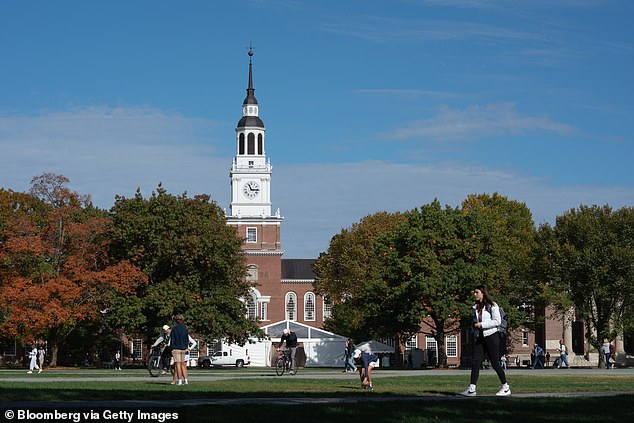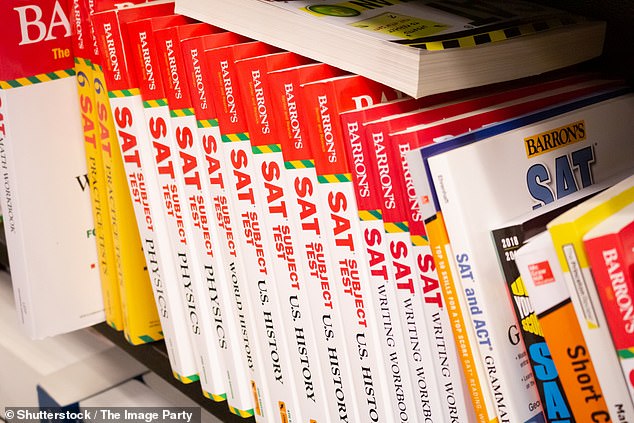Yale reinstitutes standardized tests for admissions after years of making them optional amid DEI backlash
Yale is the latest school to reinstate standardized testing requirements, reversing a pandemic-era policy that previously made submitting such scores optional.
The decision, announced Thursday by the Ivy League university’s dean of admissions, comes amid heated debate over how prospective students should be screened.
Some admissions officers have argued that the lengthy tests are not necessarily the best measure of an applicant’s potential performance — with many arguing that their high school GPAs would be more accurate.
Others agree and criticize the policy as unfair to disadvantaged students.
Based on these beliefs, the policy has persisted at countless institutions across the country, including at schools like Harvard. Rival Yale, meanwhile, is the last to pull the plug, following the example of MIT and Dartmouth.
Yale is the latest school to reinstate standardized testing requirements — reversing a pandemic-era policy that previously made submitting such scores optional

Standardized tests are still a good indicator of how students will perform in college, Undergrad Admissions Dean Jeremiah Quinlan said Thursday
“Standardized tests are imperfect and incomplete in and of themselves, but I also believe scores can help determine a student’s academic preparation for college-level work,” Jeremiah Quinlan said of the school’s decision, which is final and immediate. is strength.
“When used with other elements in an application, especially a high school transcript, test scores help lay the academic foundation for any case we consider,” he continued, some four years after the policy was implemented.
He went on to address the criticism that tests like the SATs and ACTs only serve as a barrier for disenfranchised students — claiming that he and other school officials “felt that standardized testing is especially valuable for students attending high schools with fewer academic resources.”
They came to that conclusion after analyzing the applicant pool of recent years’ admissions cycles, finding that test scores continue to predict the academic performance of students at the Connecticut college.
“Test scores convey a relatively small amount of information compared to the rich collection of insights and evidence we find in a complete application,” he explained.
“Simply put, students with higher scores are more likely to have higher Yale GPAs, and test scores are the greatest predictor of a student’s performance in Yale courses in every model we’ve developed.”
The dean further admitted that he and another staff member discovered that some students admitted to Yale in recent years without submitting scores “have done relatively well in their Yale courses.”
“But,” he added, “we further found a statistically significant difference in the average GPA between those who applied with and without test scores.”

Some admissions officers at schools like Harvard and Columbia have argued that the lengthy tests are not necessarily the best measure of an applicant’s potential performance — with many arguing that their high school GPAs would be more accurate

The New Haven, Connecticut school now claims this is not the case – with Quinlan saying on Thursday: ‘Standardized tests are imperfect and incomplete in and of themselves, but I also believe scores can help determine a student’s academic readiness for work at university level’

The decision follows the lead of the Massachusetts Institute of Technology (MIT) in 2022, after the school was among the first to roll back pandemic-era policies

Earlier this month, officials at Dartmouth College in New Hampshire also rescinded the rule — as the backlash has forced other schools to say it’s only temporary

Stuart Schmill, MIT’s dean of admissions, (pictured) said the reintroduction of standardized testing has led to the university hiring the most diverse students in the past year
Without specifying that difference, he went on to point out how the schools’ analyzes have shown that applicants without test scores are less likely to be admitted.
He continued, “This was especially true for applicants from lower income backgrounds.”
The dean then revealed how the lack of a rule requiring applicants to send at least one standardized test score caused the school’s applicant pool to increase by 166 percent in just a few years.
He said more than 57,000 students have applied for first-year admission this year, up from 35,000 before the test-flexible policy.
“The pool has grown,” he continued, “but we haven’t seen many more candidates with strong academic preparation in it.”
Similar sentiments were expressed by Stuart Schmill, MIT’s dean of admissions, last month, when he told it The New York Times that the reintroduction of standardized tests at his school in 2022 has led to the university receiving the most diverse students this year.
“Just being honest is not enough information to know whether the students will succeed or not,” he said of the university’s decision to eliminate the guidance — a decision echoed last month by Dartmouth College officials.

Previously, students had to submit at least one score from a standardized SAT or ACT to qualify for most colleges, public and private

That is now becoming less and less the case, especially after Thursday’s maneuver by the prestigious institute. Other schools, meanwhile, claim the guidance is only temporary
“When we brought back the testing requirement, we admitted the most diverse class we’ve ever had in our history,” he explained.
A few days later, staffers at Dartmouth in New Hampshire followed suit — with the school citing a study commissioned by President Sian Beilock that “confirms that standardized testing — when assessed against local standards in a student’s high school” are valuable for bachelor’s degree applications. .
Quinlan admitted Thursday, “I believe that standardized testing is only imperfect and incomplete, but I also believe that scores can help determine a student’s academic preparation for college-level work.
“When combined with other elements in an application, especially a high school transcript, test scores help lay the academic foundation for any case we consider.”
